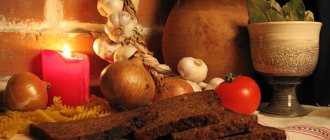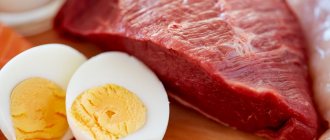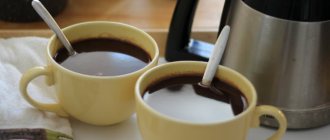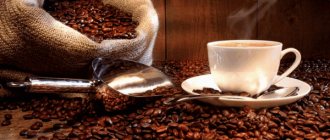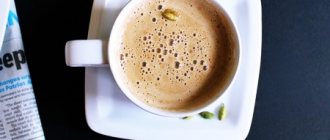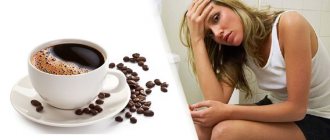Is tea with sugar allowed during Lent?
During Lent, which in 2021 is observed from March 15 to May 1, believers limit their diet, refusing to consume animal products, including milk, cream, kefir, yogurt and other fermented milk drinks.
Alcohol, including cocktails based on it, is also prohibited. Is it possible to drink tea with sugar during fasting, what can replace such a drink? This is what our story will be about.
Is it possible to drink tea during Lent 2021?
First of all, it is worth saying that a lot depends on the degree of fasting you decide to adhere to. Strict restrictions, according to the church charter, are observed by monks, but this is not necessary for laity. In addition, recommendations for fasting vary on different days.
Is it permissible to drink tea on the first day of Lent? In the first and last weeks, when the strictest fast is observed, you should limit the consumption of sugar and sweets, or better yet, completely eliminate them from the diet.
On Clean Monday, clergy and some lay people completely abstain from food and drink only water. Of course, if your health allows, you can have a fasting day. However, the ban on drinking tea at this time is not mandatory for everyone, and if you wish, you can indulge in a cup of this drink.
Some clergy advise completely eliminating other drinks from the diet at this time, including sweet juices and fruit compotes.
Even with a less strict degree of fasting, you cannot drink coffee during this period, since this drink is considered a decoction, and this preparation method contradicts the basic principle of dry eating.
Tea is an infusion, so its use is permissible even on days when only thermally unprocessed foods are allowed, for example, fresh vegetables and fruits, previously baked bread, nuts, sauerkraut, etc.
When can you drink tea during Lent?
This drink is allowed to be consumed from the second to the sixth week inclusive.
Tea, which contains many beneficial substances, has proven itself to be an effective remedy for the prevention of many diseases. It improves digestion, kidney, liver, pancreas function, neutralizes free radicals and cleanses the body of waste and toxins.
As for sugar, it also does not belong to ingredients of animal origin that are prohibited during this period, and you can add a spoon or two of this product to your tea.
In addition, you can drink various fruit drinks, compotes, jelly, homemade lemonade and kvass. The Typikon (the liturgical Charter that regulates church fasts) even allows for the consumption of a little wine on some days.
What can you drink tea with during fasting?
It can be used with honey or jam, candied fruits, candied fruits, fruit-based marshmallows, kozinaki made from seeds and any lean, that is, not containing butter, milk and eggs, baked goods, for example, with bread, lean biscuits, etc.
You can sometimes afford caramel, marmalade with agar-agar (a substance of plant origin, as opposed to gelatin).
However, you shouldn’t treat yourself to sweets too often, otherwise the meaning of fasting will be lost. It is better to limit the number of cups of sweet tea to one or two per day.
Believe me, there will be no harm to your health from this. Let us remind you that refined sugar is not a healthy product. It is 99% a simple carbohydrate, devoid of vitamins, minerals, enzymes and other beneficial substances, while at the same time it contains a lot of calories.
Sugar causes the development of many diseases, including cardiovascular and endocrine diseases, weight gain, decreased memory and attention, impaired protein metabolism and, as a result, weakened immunity.
If desired, you can replace sugar with sweet fruits, dried fruits and honey. Honey contains a large amount of vitamins (C, K, E, P, group B), minerals (potassium, sodium, nickel, calcium, manganese, chromium, iron, copper, silicon, magnesium, silver, etc.), enzymes, organic acids and proteins.
This sweet product increases the body's resistance to various infections and has a general strengthening effect, which is especially necessary for us in the spring.
Whether it is necessary not to drink sweet tea during Lent, everyone decides for themselves. If you decide to fast strictly, then it is better to limit any goodies, even completely lean ones, or completely exclude them from your diet.
You can diversify the menu with herbal teas. Fragrant and tasty drinks are prepared from linden, fireweed, chamomile, berries, leaves and twigs of rowan, raspberry, lingonberry, etc. In a thermos, such tea will not lose its properties for two days. A strained drink in a tightly closed glass container can be stored in the refrigerator for three days.
Healthy drinks are prepared from rose hips, which contain more vitamin C than lemons and black currants. Rosehip prevents the development of inflammatory processes, has a general strengthening and tonic effect on the body, and improves metabolism.
To make wild rosehip tea you will need:
- dried rose hips 10 pcs.,
- water 400 ml.
How to prepare this tea:
- Peel the berries from hairs and chop.
- Pour cold water over the rose hips, bring to a boil, then remove from heat. There is no need to boil the drink for a long time, since prolonged heating destroys vitamin C in rose hips.
- Infuse the tea, closing the lid, for 15-20 minutes.
Here are recipes for other drinks that you can drink on fasting days.
Chamomile and mint tea
Chamomile flowers are used in the treatment of colds, kidney and liver diseases, stomach and intestines. Teas and infusions from it have anti-inflammatory, diaphoretic and choleretic effects. Chamomile is also used as an analgesic and antispasmodic.
Ingredients:
- tea 1 teaspoon,
- chamomile flowers 1 teaspoon,
- mint 1 teaspoon,
- water 100 ml.
Preparation:
- Pour boiling water over chamomile, tea and mint and leave covered for 10 minutes.
- Strain the infusion.
- When serving, you can add honey to the tea.
Lingonberry tea
Lingonberry has a tonic and restorative effect on the human body. It is used as an antipyretic and antiseptic. It is also known that lingonberry fruits increase visual acuity.
Ingredients:
- dry tea 1 tbsp. spoon,
- dried lingonberry leaf 3 tbsp. spoons,
- water 1 l,
- honey.
Preparation:
- Mix lingonberry leaves with tea, add boiling water and leave covered for 5 minutes.
- Pour the hot drink into cups, add honey to taste.
Is it possible to drink tea during Lent?
Lent, which in 2021 is observed from March 15 to May 1, is one of the important tests for a believer. The main purpose of such abstinence is to cleanse the soul and body and prepare believers to celebrate the bright holiday of Easter.
These days you should not consume products of animal origin: meat, fish, eggs, milk and all products based on it, as well as strong alcoholic drinks. The Typikon (the liturgical charter that regulates church fasts) allows you to drink a little wine on certain days.
Is it possible to drink tea during Lent?
This product is of plant origin, which means it should not be banned. In addition, in the spring we simply need this drink to maintain health.
Tea has successfully proven itself as an effective remedy for the prevention of many diseases, and not only colds. It improves digestion, kidney, liver, pancreas function, neutralizes free radicals and cleanses the body of waste and toxins.
However, you shouldn’t drink too much tea every day, especially strong tea, because this drink contains caffeine, or more precisely, its variety, theine, which invigorates the nervous system and can lead to increased blood pressure, rapid heartbeat and insomnia.
It is also worth recalling that fasting is, first of all, spiritual cleansing, and not just a dietary restriction. Abstinence in diet during this period helps to cleanse the body, and prayer helps to cleanse the soul.
When and what kind of tea is allowed to drink during Lent?
Much depends on the timing of fasting, which becomes strictest in the first and last week. To the question: “Is it possible to drink tea on the first day of Lent?” The clergy give a negative answer.
According to the church charter, in the first and last week (on Clean Monday, Good Friday) the monks completely refuse food and drink only water. On such days, lay people can adhere to dry eating, that is, eating thermally unprocessed food.
Is it permissible to drink tea with sugar during fasting? In the first and last week of fasting, those who are fasting should limit their consumption of sugar and sweets, or better yet, completely eliminate them from the diet.
To test whether you can live without tea and other caffeine-containing drinks, you can give up tea and coffee for one or two days on the eve of fasting. If you find it difficult to do this, you may be an addict. And any addiction is a sin, and we must fight it.
Is tea allowed from the second to the sixth week of Lent? On dry eating days (Mondays, Wednesdays and Fridays), you should not drink coffee during this period, since this drink is considered a decoction, and this preparation method contradicts the basic principle of dry eating.
Tea is an infusion, so its use on the mentioned days of Lent is considered acceptable. It is also allowed to consume various fruit drinks, jelly, lemonade and kvass.
As for the consumption of tea and the listed drinks on the first day of Lent, then, as the clergy say, the ban on everything except water at this time is unconditional. Still, you can drink a cup of tea without sugar without the risk of breaking your fast.
Is it possible to drink tea with sugar during fasting?
On the one hand, sugar is not an ingredient of animal origin; on the other hand, it is not one of the most necessary products for the human body.
In the old days, most Russians ate sugar only on holidays, because it was very expensive. And now we cannot imagine our diet without it, and in vain.
Sugar and its various substitutes (saccharin, aspartame and others) cause the development of many diseases, and reducing their amount will only benefit your health.
It is believed that the number of cups of sweet tea should be limited to one or two per day. After all, tea with sugar is a pleasure, and during fasting, especially if it is Lent, we must limit ourselves in everything.
Instead of sugar on fasting days, it is better to include small amounts of honey and sweet fruits – fresh and dried – in your diet. You can occasionally indulge in such Lenten sweets as jam, candied fruits, kozinaki, marmalade with agar-agar.
Tea can be drunk with any lean, that is, not containing butter, milk and eggs, baked goods, for example, with bread, lean biscuits, etc.
But if you decide to observe a strict fast, then it is better to limit any “goodies”, even completely lean ones, or completely exclude them from the diet.
Herbal tea during Lent
Our story about tea during Lent would be incomplete without mentioning herbal teas - not only tasty, but also very healthy. These days you can drink tea from autumn strawberry leaves, from berries, flowers and leaves of raspberries and blackberries, from mint, currant leaves, lingonberries, thyme or thyme, from linden flowers... Here are a few recipes.
Herbal tea
For 2 servings you will need to take:
- linden flowers 1 tbsp. spoon
- currant or raspberry leaves 1 tbsp. spoon
- mint or lemon balm 1 tbsp. spoon
- water 400 ml
How to make herbal tea:
- Scald the teapot, pour flowers, currant and mint leaves into it.
- Fill the kettle with boiling water and cover with a lid. Infuse the tea for 15–20 minutes, strain.
- Serve tea with sugar or honey.
Rowan tea
- dried rowan fruits 2 tbsp. spoons
- fireweed (fireweed) 1 tbsp. spoon
- water 600 ml
Rowan tea is prepared according to this recipe as follows. Mix rowan and fireweed, add boiling water and leave for half an hour.
Tea made from rose hips will help strengthen the body in spring days. It contains more vitamin C than lemons and black currants.
In addition, it contains a large amount of other vitamins (A, K, E, P, group B) and minerals (potassium, calcium, iron, magnesium, phosphorus, chromium and others), so rosehip drinks can be included in the menu instead multivitamin preparations.
Rosehip prevents the development of inflammatory processes, has an antibacterial, restorative and tonic effect, improves metabolism and increases appetite.
Rose hip tea
- rose hips, fresh or dried 10 pcs.
- water 400 ml
You can prepare rosehip tea like this:
- Remove hairs from the berries. Mash fresh berries, chop dry ones.
- Pour cold water over the rose hips, bring to a boil, then remove from heat. Leave, covered, for 15–20 minutes.
There is no need to boil rosehip tea for a long time, since prolonged heating destroys vitamin C in it.
Herbs and fruits can be bought at the pharmacy, or you can prepare them yourself. Typically, herbs and other plants are collected during the flowering period. Store them after drying them in tightly sealed containers, boxes, paper or cloth bags.
In a thermos, herbal tea will not lose its properties for up to two days. Strained tea in a tightly closed glass container can be stored in the refrigerator for three days.
Is it possible to drink this herbal tea on the first day of fasting? Some clergy, as we wrote above, advise completely eliminating all drinks except pure water from the diet at this time. However, it all depends on what level of fasting you decide to do. With less strict abstinence, the use of herbal teas at this time is permitted.
But whether it is possible to add sugar to herbal tea from the second to the sixth week of fasting is up to you to decide. The purpose of fasting is, first of all, spiritual cleansing, not physical. So an extra cup of tea with sugar still won’t be too much of a sin compared to the bad thoughts and feelings that believers should get rid of.
Is it possible to drink tea during fasting?
However, let's dwell on the question of whether tea is possible during fasting, so to speak, from a generally accepted point of view. It is believed that tea is still a product of plant origin, so its use even during fasting is not prohibited. Another thing is that the Church does not recommend consuming black varieties, which contain much more caffeine, which, by the way, is considered a narcotic substance, than even brewed coffee.
But green tea is recommended for consumption. Surprisingly, in its regard, Orthodoxy is quite interesting and comes close to Eastern philosophy (also Buddhism, Confucianism, Zen, etc.). In these religions, the question of whether tea is allowed during fasting is decided positively, because the drink itself plays one of the key roles in the traditions of eastern peoples.
